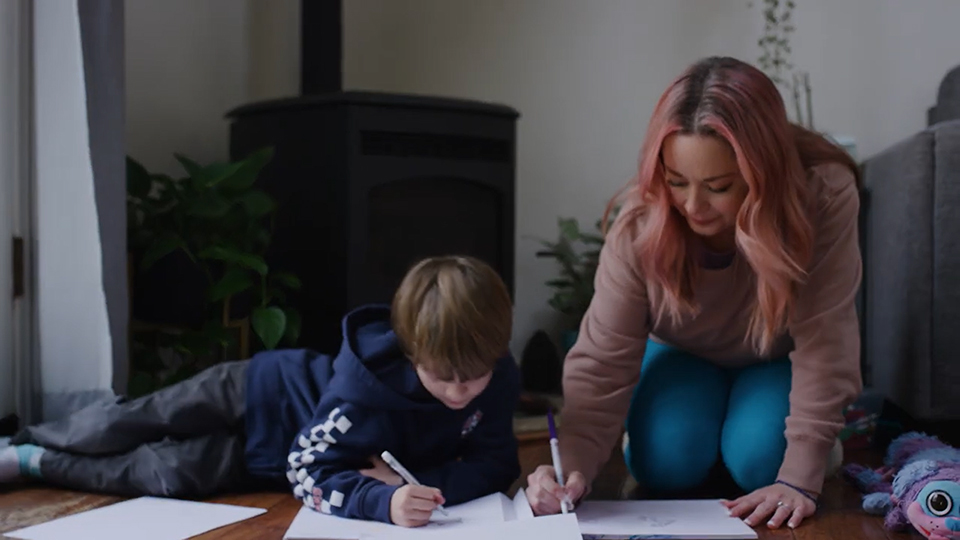Overview
What are desmoid tumors?
Desmoid tumors are benign growths that form in connective tissue. These soft-tissue tumors tend to grow in your belly (abdomen), arms, or legs, though they can develop anywhere in your body. You will often have only one desmoid tumor in one area of your body, but they can also appear in multiple areas.
Many desmoid tumors grow slowly and don’t need treatment right away. However, some grow quickly and should be treated if they invade other tissues or organs. Desmoid tumors may also be called aggressive fibromatosis, deep fibromatosis, or desmoid fibromatosis.
How do desmoid tumors develop?
Desmoid tumors start in connective tissue cells called fibroblasts, which help heal wounds. They form when these cells change (mutate) and multiply. While benign, desmoid tumors are related to a cancerous soft-tissue tumor called sarcoma. That’s why they are treated by cancer doctors.
Connect to Care
Let us help find personalized care options for you and your family.
Understanding Desmoid Tumors
Desmoid Tumor Symptoms
Signs of desmoid tumors depend on their location and size. Some people with desmoid tumors may not have symptoms, or symptoms may not appear until the tumor grows larger. Common symptoms may include:
- Difficulty moving your arms, hands, feet, or legs
- Pain or soreness related to a tumor pressing on muscles, nerves, or blood vessels
- Swelling or lump in your abdomen, arms, chest, neck, or legs
- Tingling feeling from a tumor pressing on blood vessels or nerves
People with abdominal desmoid tumors may experience:
- Abdominal pain
- Bloating
- Constipation
- Cramping
- Nausea and vomiting
Desmoid Tumor Risk Factors
Researchers don’t know the exact cause of desmoid tumors. But your risk may increase if you:
- Are between ages 30 and 40
- Are assigned female at birth
- Are pregnant
- Have an inherited syndrome that causes colon polyps (familial adenomatous polyposis, or FAP). About 10 to 20% of people with FAP have a desmoid tumor.
- Have had a recent serious injury or surgery, or repeated injuries or surgeries on one area of your body
- Have high levels of the estrogen hormone
Types of Desmoid Tumors
Doctors categorize desmoid tumors based on where they grow in your body:
- Abdominal wall desmoid tumors: This type is found in abdominal wall tissues surrounding organs in your abdomen, such as your stomach.
- Extra-abdominal desmoid tumors: This tumor type typically grows in areas outside your abdomen, such as your chest wall, shoulder, upper arm, or upper leg. They may also sometimes form in your head or neck and, less often, in your bladder or scrotum.
- Intra-abdominal desmoid tumors: This type develops in tissue around your intestines (mesentery).
Diagnosis
To diagnose desmoid tumors, your doctor will check your body for lumps or bumps. We look for lumps that are larger than 2 inches, are growing, or cause pain. We may also recommend imaging tests to check the tumor’s size and location and to see whether it affects nearby organs or tissues. These tests may include:
- CT scan: This test uses X-rays to create detailed images of the tumor. It helps us see the tumor’s size.
- CT scan with contrast: We give you a special dye before the scan to see the tumor in greater detail. We may inject the dye or give it to you as a pill or liquid to drink. We use a CT scan with contrast to diagnose intra-abdominal tumors.
- MRI: This test uses magnetic fields to create detailed images of the tumor and its size. We use MRI to diagnose abdominal wall and extra-abdominal desmoid tumors.
- Ultrasound: This test uses sound waves to make a picture of the tumor. It helps us see organs in your body or lumps under your skin.
If we suspect a desmoid tumor, we will obtain a tumor tissue sample for testing (biopsy). The biopsy types we offer include:
- Core biopsy: We use a wide, hollow needle to remove the tissue sample. We may use a CT scan, MRI, or ultrasound to guide the needle to the tumor.
- Excisional or incisional biopsy: We use surgery to remove the entire tumor (excisional biopsy) or part of the tumor (incisional biopsy).
Desmoid Tumor
Desmoid tumors are noncancerous growths that form in connective tissue in your arms, belly, or legs. We offer diagnosis, advanced treatments, and support.
Desmoid tumor
Desmoid tumor treatment
desmoid tumor symptoms
abdominal wall desmoid
aggressive fibromatosis
desmoid fibromatosis
benign soft-tissue tumor
cryoablation

